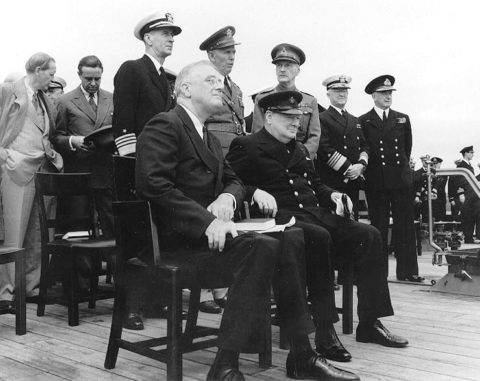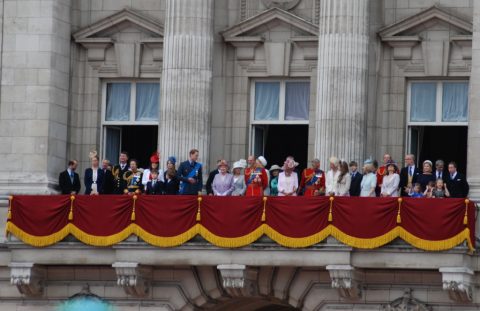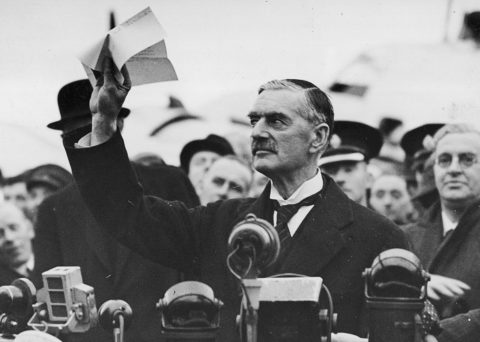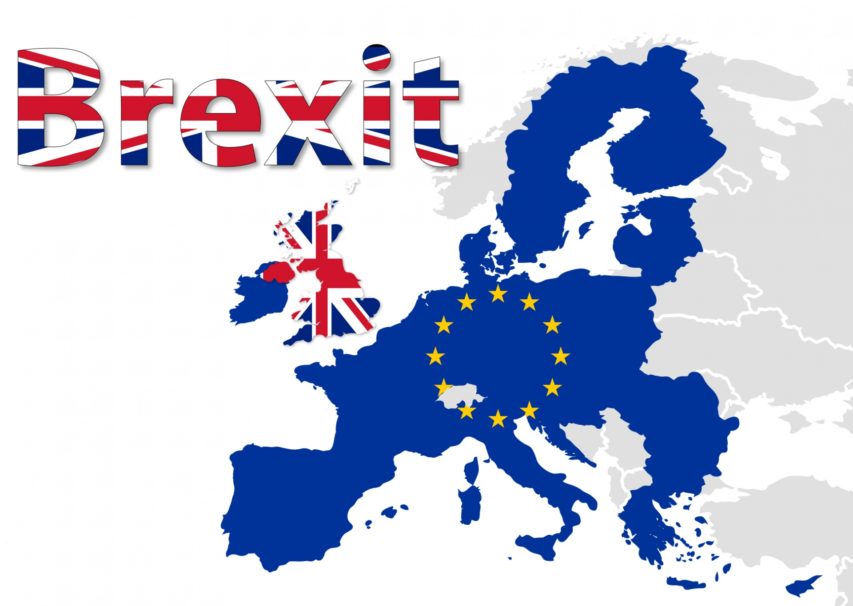The Korean War by Indy Neidell
Published 21 Jan 2025Matt Ridgway sends forth the US 27th Infantry Regiment, known as the Wolfhounds, into the no-mans-land between the UN and Chinese lines to sniff out and hunt down their enemy. The success or failure of his first few operations in Korea could be crucial, as confidence in the UN mission from generals, politicians, and the US’ allies continues to teeter on a knife edge. A strong showing here could finally put the uncertainty to rest.
Chapters
00:00 Intro
00:45 Recap
01:11 Meeting at Taegu
04:19 Operation Wolfhound
07:44 Collins Reports
09:35 Trouble in Paradise
12:59 Wonju
14:54 Summary
15:18 Conclusion
(more…)
January 22, 2025
The Korean War 031 – Operation Wolfhound – January 21, 1951
December 11, 2024
The Korean War 025 – UN Forces Abandon Pyongyang – December 10, 1950
The Korean War by Indy Neidell
Published 10 Dec 2024This week, UN forces in the west pull out of the North Korean capital Pyongyang. In the east, the marines continue to fight their way towards safety. Over in Washington, the aftershocks of the Chinese intervention have shaken high command as much as they have the troops on the ground, and America’s allies, especially Britain, grow alarmed over the US response.
Chapters
00:00 Intro
00:26 Recap
01:20 The Blame Game
03:58 Retreat in the West
07:43 The Chinese Situation
10:59 Escaping Chosin
13:57 Atoms and Attlees
18:07 Summary
18:20 Conclusion
(more…)
August 29, 2024
Britain’s empire after WWII
From my readings about the behind-the-scenes negotiations among the western allies even before the United States formally entered the war in late 1941, I’ve always felt that the personal relationship between Winston Churchill and Franklin Delano Roosevelt was at least as important as the formal public proclamations and direct actions of the allies. It’s my belief that Churchill and FDR had a “wink and a nod” agreement for the US to continue supporting the British economy after the end of the war in Europe, probably in exchange for a gradual retreat from formal Imperial control over at least some of the remaining British colonies. This would have made Britain’s immediate postwar experience far less grim economically and politically and allowed the British economy to gracefully switch from full wartime production to fulfilling peacetime business and consumer needs.

Church services on HMS Prince of Wales, in Placentia Bay, Newfoundland, during the Atlantic Charter Conference. President Franklin D. Roosevelt (left) and Prime Minister Winston Churchill are seated in the foreground. Standing directly behind them are Admiral Ernest J. King, USN; General George C. Marshall, U.S. Army; General Sir John Dill, British Army; Admiral Harold R. Stark, USN; and Admiral Sir Dudley Pound, RN. At far left is Harry Hopkins, talking with W. Averell Harriman.
US Naval Historical Center Photograph #: NH 67209 via Wikimedia Commons.
Of course, with Roosevelt dead (and Truman certainly not “read-in” on any unwritten promises to the British) and Churchill out of office (which was as much of a shock to the Americans as it was to Churchill himself), whatever they may have hoped to do was now so much wishful thinking. Britain had to not just continue wartime rationing after VE and VJ Day, but to actually make it more stringent for nearly a decade just to avoid national bankruptcy … and the withdrawal from imperial outposts had to be done as quickly and as cheaply as possible. This often meant corners were cut, cheeses were pared, and shortcuts availed of, so that the experiences of the former colonies were more fraught with civil disturbances and commercial disruptions than they should have been.
All of this is a very long-winded way to introduce Joshua Treviño’s post at Armas which considers how an American imperial decline may or may not mirror the postwar British experience of de-imperialization:
We can guess that American decline under the present regime will look much like Britain’s. The British case is taken as so normative — of course a nation will decline after its empire is gone — that the normativity goes unquestioned. But this is the worst sort of history, determinative in retrospect, as if the loss of imperium (or more properly, the loss of imperial fiscal stability) set in motion dominoes that fell unstoppably until the latest squalid episode of Keir Starmer’s thought police. That isn’t how human events work, however: all things are contingent. Britain was, in the eyes of several European powers, reduced to a mid-tier power after the catastrophic loss of America at the opening of the 1780s — and a generation later it was the indispensable nation versus French hegemony. There was not any particular reason a comparable recovery ought not have happened in the generation after 1945, even with the loss the of the empire, and even with the great postwar crisis of the pound sterling. This was in fact the high-Tory view as set forth by Enoch Powell, who evolved toward a belief that the empire was a burden on Britain, which could ascend to its destiny and fulfillment by means of the British themselves.
That this did not happen is plausibly much the fault of the Americans, who did two major things — one of them unwittingly — to forestall this sort of recovery. The first act, undertaken with deliberation, was the credible American threat to destroy the United Kingdom’s finances and economy in the 1956 Suez crisis: in no way the act of an ally, and one whose psychological effects upon Britain’s governing elites were as significant as the hard-power effects upon Britain itself. (Though I am not a particular fan of De Gaulle, for reasons that may be discussed here later, he was unquestionably a better steward of the nation than his U.K. counterparts in his conclusion — admittedly coalescing a decade earlier — that a European state could be a major power, or it could be a junior partner to the United States, but not both.) The British regime’s reaction to the episode — to draw so close to the Americans as to abandon the nation’s strategic independence — thereby contributed powerfully to Britain’s subsequent diminishment. That diminishment was not simply in the realm of hard power: it was accompanied by a profound social and governmental malaise that has fluctuated across the decades but has yet to lift. Philip Larkin’s 1969 Homage to a Government captures it well:
Next year we are to bring all the soldiers home
For lack of money, and it is all right.
Places they guarded, or kept orderly,
Must guard themselves, and keep themselves orderly
We want the money for ourselves at home
Instead of working. And this is all right.It’s hard to say who wanted it to happen,
But now it’s been decided nobody minds.
The places are a long way off, not here,
Which is all right, and from what we hear
The soldiers there only made trouble happen.
Next year we shall be easier in our minds.Next year we shall be living in a country
That brought its soldiers home for lack of money.
The statues will be standing in the same
Tree-muffled squares, and look nearly the same.
Our children will not know it’s a different country.
All we can hope to leave them now is money.The superficial read of Larkin here is that he laments deriving purpose from other things closer to home. There is a baseness in the imperialist’s love of mission, and he misses the sublime in, say, the National Health Service. It is a dumb atavism: if the “tree-muffled squares … look nearly the same”, then why does it matter that “the soldiers [are] home”? This interpretation is wrong. What Larkin laments is the loss of the common and noble purpose in the civic partnership that makes the nation, as defined at the outset of Aristotle’s Politics — without which the nation fails to cohere, even if its regime persists. Despite the strenuous efforts of the left and progressivism across the past century, that virtuous end to which the nation has been directed has never been supplanted in its old forms — religion, glory, strength, creation — by any new ones of social programs or millennialist materialism. When Clement Attlee wrote in his 1920 The Social Worker that the Protestant Reformation was to blame for the moral degradation of charity, his solution was not the obvious one (which is to say, the restoration of Catholic England or at least its mores), but to interpose government where religion and its purposes used to be. His 1945 general-election invocation of building “Jerusalem” in England, directly quoting William Blake, logically followed.
But that is not how Jerusalem is built. It remains unbuilt, and the civic effects of the American fixation and what it facilitates redound across time. Nick Cohen accuses the modern British right of Americanizing itself, and that is largely accurate, but contra his indictment, the British left does the same in different ways. What the Americans did in 1956 was not a singular event — rather it was a punctuation on a process that had been unfolding in stages for the preceding forty years or so — but their objects got a vote too. That vote was to submit, a preference shared across right and left alike. That no American regime ever had Britain’s interest fully at heart (a truth with ample reminders, not just at Suez, but in Northern Ireland, in the Falklands, in Grenada, in Iraq, and in Afghanistan) did not alter this course, thereby making a triumph of theory unmoored from fact.
July 31, 2024
The Korean War Week 006 – Stand or Die! – July 30, 1950
The Korean War by Indy Neidell
Published 30 Jul 2024The UN Forces have been pushed back ever further, but this week, US 8th Army Commander Walton Walker issues the order to “stand or die”; he sees no other options. American reinforcements are finally getting into the actual fight, though, and Britain has decided they will send in ground troops, so things might turn around … if they can hold out long enough for those troops to arrive, because a brilliant North Korean strategy might win the war and soon.
(more…)
July 28, 2024
Allies Issue Potsdam Declaration – WW2 – Week 309 – July 27, 1945
World War Two
Published 27 Jul 2024China, Britain, and the US issue a Declaration demanding Japan’s unconditional surrender, and promising complete destruction if this does not happen and happen soon. The plan is to for the Americans to use their atomic bombs on Japan if she does not comply, but by the end of the week the Japanese have not replied. They still have hopes for the Soviets to mediate some sort sort of peace. What they don’t have is a navy, as its final destruction comes this week.
00:00 Intro
00:50 Recap
01:32 The Potsdam Conference
04:41 Japanese Hopes
05:56 The Potsdam Declaration
10:53 The Initial Reaction
14:48 The End Of The Japanese Navy
15:05 The War On Land
19:10 Summary
19:30 Conclusion
(more…)
September 12, 2022
The art of the constitutional monarchy
At The Ruffian, Ian Leslie considers the form of government nobody set out to design, but has proven to be one of the most stable forms of government we’ve had:

The royal family at Buckingham Palace for the Trooping of the Colour, 30 June, 2015.
Photo by Robert Payne via Wikimedia Commons.
When I said that nobody would design this system, that is not a criticism. Evolved systems tend to work better than designed ones, even if they can seem maddeningly irrational to those who presume to know better. Yesterday somebody posted extracts from an essay by Clement Attlee. As a socialist, Attlee might have been expected to oppose or at least be sceptical of constitutional monarchy, but he was a strong believer in it. Attlee was writing in 1952, a year after the end of his term as Prime Minister, and the same year that Queen Elizabeth came to the throne. When he refers to the monarch, he refers to her – one of those examples of how the Queen’s longevity stretches our perception of time. “You will find the greatest enthusiasm for the monarch in the meanest streets,” he writes. After qualifying as a lawyer, Attlee ran a club in the East End of London for teenage boys raised in dire poverty. He remembers one of them saying, “Some people say as how the King and Queen are different from us. They aren’t. The only difference is that they can have a relish with their tea every day.”
Attlee notes that Norway, Sweden, and Denmark — countries in which there is “the highest equality of well-being” — have royal families. That’s still true and we might add the Netherlands to that list. While it’s impossible to disentangle the many historical factors that make for a decent and successful society, it is at the very least tough to make the case, on evidence alone, that democratic monarchies are inherently bad. Indeed, they seem to work pretty well versus other forms of government. As the left-wing American blogger Matt Yglesias remarked yesterday, “It’s hard to defend constitutional monarchy in terms of first principles, but the empirical track record seems good.”
If this is so, I’m interested in why (let’s agree, by the way, that there isn’t one definitively superior way of running a country, and that every system has flaws). My guess is that it’s because constitutional monarchies do a better job than more “rational” forms of government of accommodating the full spectrum of human nature. They speak to the heart as well as the head. Attlee puts it succinctly: “The monarchy attracts to itself the kind of sentimental loyalty which otherwise might to the leader of a faction. There is, therefore, far less danger under a constitutional monarchy of the people being carried away by a Hitler, a Mussolini or even a de Gaulle.” (I need hardly add that for Attlee, these were not merely historical figures.) Martin Amis, in the closing paragraph of his 2002 piece about the Queen for the New Yorker, expresses the same idea with characteristic flair:
“A princely marriage is the brilliant edition of a universal fact,” Bagehot wrote, “and as such, it rivets mankind.” The same could be said of a princely funeral — or, nowadays, of a princely divorce. The Royal Family is just a family, writ inordinately large. They are the glory, not the power; and it would clearly be far more grownup to do without them. But riveted mankind is hopelessly addicted to the irrational, with reliably disastrous results, planetwide. The monarchy allows us to take a holiday from reason; and on that holiday we do no harm.
Yes, there is something deeply sentimental and even loopy about placing a family at the centre of national life, and ritually celebrating them, not for what they’ve done but for who they are. But here’s the thing: humans are sentimental and yes, a bit loopy. Constitutional monarchies accept this, and separate the locus of sentiment from the locus of power. They divert our loopiness into a safe space.
In republics, the sentimentality doesn’t go away but becomes fused with politics, often to dangerous effect. Russia, despite having killed off its monarchy long ago, retains an ever more desperate hankering after grandeur, the consequences of which are now being suffered by the Ukrainians. America’s more “rational” system has given us President Donald Trump, and I don’t think it’s a coincidence that their political culture is more viciously, irrationally polarised than ours.
Monarchy, in its democratic form, can also be a conduit for our better natures. It gives people a way to express their affection for the people with whom they share a country, by proxy. Think about that boy in Limehouse: it’s not that he wouldn’t have preferred to have relish with his tea – to be rich, or at least richer. But he recognised that, as different as human lives can be, they are always in some fundamental ways the same. People have mothers and fathers (present or absent, kind or cruel), brothers and sisters, hopes, fears, joys and anxieties. That’s why one family can stand in for all of us, even if that family lives in a very privileged and singular manner.
January 19, 2022
Neville Chamberlain, the “great appeaser”
Alexander Larman considers an attempt to paint British Prime Minister Neville Chamberlain in a much more positive light than his popular image after appeasement failed:

Prime Minister Neville Chamberlain at Heston Aerodrome, holding up a copy of the Anglo-German Declaration he had negotiated with Adolf Hitler, 30 September, 1938.
Narodowe Archiwum Cyfrowe via Wikimedia Commons.
On 30 September 1938, the Prime Minister Neville Chamberlain waved a piece of paper in his hand and declared “My good friends, for the second time in our history, a British Prime Minister has returned from Germany bringing peace with honour. I believe it is peace for our time.” He was, of course, incorrect. Less than a year later, Britain was at war with Germany, and the piece of paper was rendered meaningless.
Posterity has been hard on Chamberlain, regarding him as one of the least effective British premiers, and he has been entirely overshadowed by his more charismatic and successful replacement, Winston Churchill. Yet the bestselling author Robert Harris took a more sympathetic view of Chamberlain, and suggested in his 2017 novel Munich that, far from the Prime Minister being a hapless blunderer, he was in fact a canny tactician who bought his country an invaluable extra year to prepare for the coming conflict. This novel has now been filmed by Netflix, and has attracted particular attention for Jeremy Irons’ sympathetic and warm portrayal of Chamberlain.
Harris has even suggested that “I could perhaps show him as a tragic hero rather than merely the gullible old fool of popular myth … it is a mark of maturity to be able to hold two competing views in one’s head at the same time: that Churchill was vital to the defeat of Germany, and so, in a different way, was Neville Chamberlain.” Does he have a point, or is this just the canny spin of a novelist who has found a new and profitable angle to bring a well-worn story to life?
For my forthcoming book The Windsors at War, dealing with the royals in WWII and their relationships with the politicians of the day, I researched many letters and documents written by Chamberlain, members of the Royal Family and those around him in Downing Street. Several things came to light. There was residual antipathy between Chamberlain, who was an instinctive appeaser, and Churchill, who was not, and the Prime Minister privately derided the other politician as “a bandit” and “a pirate”. He also despised Attlee’s Labour party, calling them experts in “sob-stuff” sentimentality. He can undeniably be accused of high-handedness and complacency. Yet the charge of incompetence is a more deadly one.
Chamberlain himself came from a distinguished political family. His father Joseph was a ruthless Liberal parliamentarian who was said to have originated the phrase “you cannot teach old dogs new tricks”, and his elder brother Austen, one-time Chancellor of the Exchequer and leader of the Conservative Party, demonstrated a confidence in his intellectual abilities that his sibling did his best to emulate. He was not universally popular with his own side – the Conservative MP and diarist Harold Nicolson called him “a bourgeois shit” – but he generally had the support of his party in pursuing his policy of appeasement towards Hitler and Germany, believing – correctly – that Britain could not win the conflict outright.
August 1, 2018
British Labour Party continues to sideline pro-Brexit MPs
Fraser Myers on the most recent pro-Brexit Labour MP deselected by local party activists:
Labour Party activists have passed votes of no confidence in two of Labour’s Brexit-backing MPs, and called for their deselection. Frank Field and Kate Hoey were censured by their local parties for voting with the government against an amendment that would have kept the UK in a customs union with the EU after Brexit. If passed, it would have killed off any prospect of Britain having an independent trade policy after Brexit, and would have kept us under the jurisdiction of the European Court of Justice. Recognising this as a betrayal of the Leave vote, Labour Brexiteers had no other choice but to vote with the government to defeat the amendment. Now, for defending the democratic choice of 17.4million voters, Field and Hoey stand accused of ‘betraying’ the Labour movement and ‘siding with the reactionary Tory establishment’.
This sends a disastrous message to voters and pits Labour against the Leave vote, the largest democratic mandate in British history. Labour’s better-than-expected result at the 2017 General Election depended on retaining Brexit-voting seats. Two thirds of Labour MPs represent Leave-backing constituencies, with some of the largest Leave votes in Labour-held seats. Labour needs to win 64 seats at the next election to form a majority government, 42 of which are dotted around blue-collar, Leave-voting England. To attack the few Labour MPs who are on the side of the Leave majority is an astonishing act of self-harm for a party that claims to represent ordinary people.
While some Blairite MPs have long feared the prospect of deselection campaigns launched by the Corbyn-backing Momentum, the no-confidence motion against Kate Hoey was initiated by members of the Blairite pressure group, Progress. And rather than stand up for Hoey, a defender of Corbyn’s leadership, Momentum sided with its erstwhile rivals against the Brexiteer MP. As Owen Jones revealingly writes in the Guardian: ‘Self-professed Blairites, soft lefties and Corbynites were united in this vote.’ While the Blairite and Corbynite wings of the party claim to agree on very little, they appear to be united in their contempt for the electorate and for democracy.
These activists seem to forget that Labour has a long history of Euroscepticism. Labour’s much-celebrated postwar prime minister, Clement Attlee, and the architect of the NHS, Nye Bevan, were against Britain joining the EU’s predecessor, the European Economic Community (EEC). When the left-winger Michael Foot led Labour into the 1983 General Election, the party’s manifesto pledged to withdraw Britain from the EEC. Tony Benn – Corbyn’s hero – opposed the anti-democratic tendencies of the EU all his life. Would Benn, Foot and Bevan face a similar fate to Hoey and Field in Labour today?




